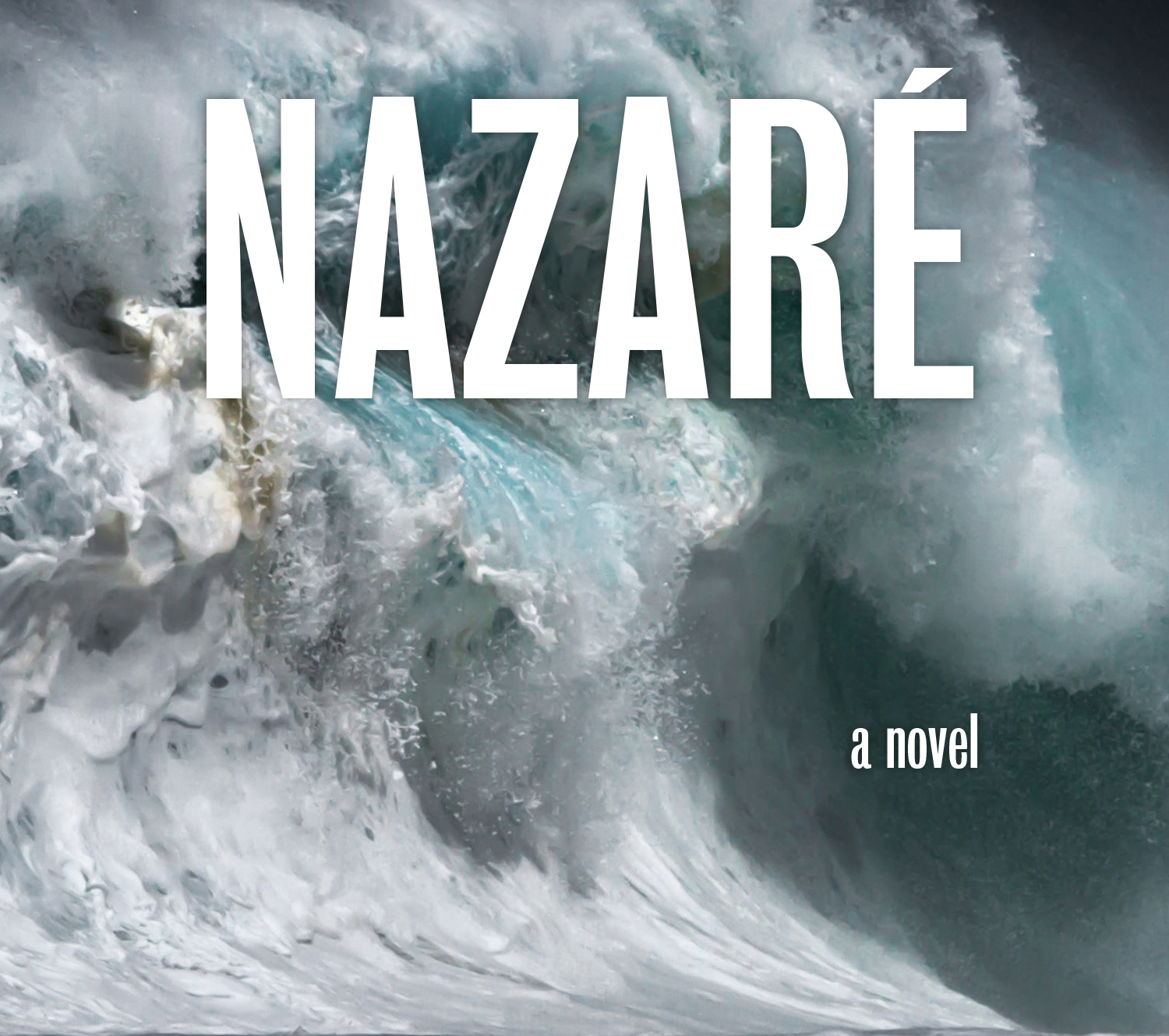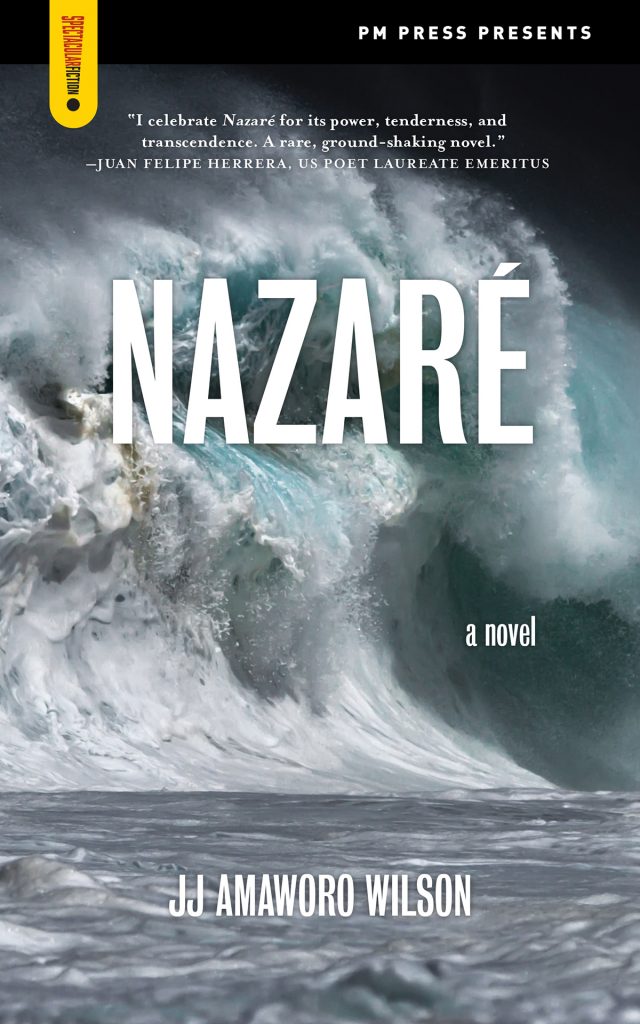By Carol Duff
Veterans Today
December 29, 2021
Nazare, J.J. Amaworo Wilson. ISBN: 978-1-62963-908-6 (paperback), ISBN: 978-1-62963-920-8 (hardcover), ISBN: 978-1-62963-919-2 (ebook) PM Press.
Nazaré tells the story of a peasants’ revolt in the polyglot city of Balaal. The story begins with a miracle. A homeless boy sees a whale washed up on the beach. He alerts the local fishermen, and soon the whole town is trying and failing to push it back into the ocean. With just the boy left to accompany the whale now in its dying throes, a freak wave pulls the creature back into the sea. This is an omen. Change is coming.
The boy and the washerwoman who adopts him cobble together a ramshackle army of fishermen, shopkeepers, lapsed nuns, anarchist bats, and an itinerant camel. They attempt to end the reign of the dictator who rules over Balaal. Their attempt involves pitched battles, farcical trials, rooftop escapes, and sun-parched wanderings in the wilderness. Looming over the disparate cast of characters is the legend of the giant wave—Nazaré—that will one day annihilate everyone and everything in the city.
Nazaré is an adventure and a parable that pits the oppressed against the oppressor. The work has been likened to that of Gabriel García Márquez and Mario Vargas Llosa in its use of language, its inventiveness, its humor, and its examination of issues of justice.
JJ Amaworo Wilson catapulted onto the contemporary literary scene with his first novel, Damnificados (PM Press, 2016) an epic saga of social justice written in the mode of magical realism. Filled with colorful characters and elegant language, the book won numerous awards and gleaned wide critical praise. Nazaré, his awaited second novel, once again presents a unique reality, with mythic territory, bursts of magic, man’s inhumanity to man along with a good portion of comic relief. Like Damnificados, it follows the story of an oppressed population and a culture of resistance. Wilson says, “I was inspired to write Nazaré by the Arab Spring and other revolutions and rebellions. I wanted a narrative illustrating that the power of the people is stronger than the people in power.”
The great wave. Kin, an orphan scavenger in the Fishing Village with No Name, finds a stranded whale on the beach and tries to return it to the ocean. His efforts attract the attention of Mayor Matanza and his bloodthirsty police, the Tonto Macoute, and Kin must leave the only home he’s ever known. His journeys take him to an abandoned lighthouse, through singing caves and brutal deserts, and finally to a village of warrior historians.
There he meets the Professor and others who are preparing to overthrow Matanza. They are joined by Jesa, a woman from Kin’s village who might be a witch, and the nun Iquique. Their revolution is unlike any other, fought by tinkers and miners, monks and acrobats, clairvoyants in bowler hats, a painted saint, the King of the Rats, and a giant turtle named Abacaxi. The holy man Fundogu once told Kin, “You will do battle with monsters and you will do battle with men.” As Fundogu’s prophecy takes shape around him, Kin remembers another of Fundogu’s sayings: “Everything begins and ends in the sea.”
About the Author: J.J. Amaworo is a German-born Anglo-Nigerian-American writer. He is a novelist, short story writer, and non-fiction writer. Based in the U.S., he has lived in 11 countries and visited over 70. He is the prizewinning author of over 20 books about language and language learning, and his short fiction, essays, and poetry have been published by Penguin, The New York Journal of Books, Johns Hopkins University Press, A Public Space, and numerous literary magazines in England the the U.S. His 2016 novel, Damnificados, won three international awards and has since been translated into French and German. His work has appeared in African American Journal, Justice Journal, The Penguin Book of the New Black Writing, and many other publications. He is currently the writer-in-residence at Western New Mexico University, Silver City.








